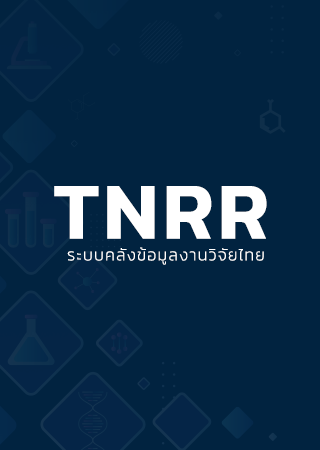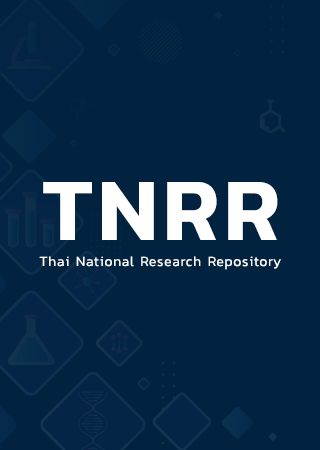Description
แนวคิดของเสียเป็นศูนย์ หรือ Zero Waste เป็นแนวทางการส่งเสริมการหมุนเวียนทรัพยากรกลับมาใช้ใหม่ เพื่อให้เกิดการใช้ทรัพยากรอย่างมีประสิทธิภาพสูงสุด และลดปริมาณของเสียที่เกิดขึ้น นอกจากนี้ยังรวมถึงปัญหาสิ่งแวดล้อมที่ต้องมีการแก้ไขอย่างเร่งด่วน การนำองค์ความรู้จากงานวิจัยและนวัตกรรมมาใช้เป็นแนวทางในการแก้ไขปัญหาจึงเป็นสิ่งจำเป็น ดังนั้นในแผนงานวิจัย การเปลี่ยนของเสียเป็นพลังงานเพื่อเป้าหมายของเสียเป็นศูนย์ จึงเป็นการนำองค์ความรู้และนวัตกรรมของโครงการย่อยทั้ง 9 โครงการมาใช้เป็นแนวทางในการจัดการและแก้ไขปัญหาดังกล่าว โดยกำหนดกรอบการวิจัยจากการนำของเสียในอุตสาหกรรมอ้อยและน้ำตาล และขยะชุมชนเพื่อตอบโจทย์แนวคิด Zero Waste ของแผนงานวิจัยนี้ จากผลการวิจัย พบว่าทั้ง 9 โครงการย่อย สามารถตอบวัตถุประสงค์ของแผนงานได้ โดยมี 7 โครงการย่อยเป็นการนำของเสีย จากการปลูกอ้อยและจากอุตสาหกรรมน้ำตาลมาใช้ประโยชน์ ซึ่งมีการนำเอาเทคโนโลยีและองค์ความรู้มาใช้ในการบริหารจัดการชีวมวล แปรรูปของเสีย และน้ำเสียที่เกิดจากอุตสาหกรรมอ้อยและน้ำตาลมาใช้เป็นพลังงานในโรงงานน้ำตาลและโรงไฟฟ้าชีวมวล และมีการเพิ่มมูลค่าชานอ้อยเพื่อใช้เป็นวัสดุ และสารเคมีชีวภาพเพื่อใช้เป็นสารตั้งต้นในอุตสาหกรรมอื่นๆ และอีก 2 โครงการย่อยเป็นการนำขยะในครัวเรือนหรือชุมชนมาใช้ประโยชน์ เช่น การนำน้ำมันที่ได้จากการไพโรไลซิสขยะพลาสติกมาปรับปรุงคุณภาพโดยลดปริมาณ PAHs ซึ่งเป็นสารหนึ่งที่ก่อให้เกิดมลพิษต่อสิ่งมีชีวิตและสิ่งแวดล้อม ทำให้น้ำมันที่ได้จากขยะพลาสติกสามารถนำมาใช้เป็นพลังงานได้อย่างปลอดภัย รวมถึงการศึกษาเชิงนโยบายเพื่อกำหนดหลักเกณฑ์การตั้งโรงไฟฟ้าขยะชุมชนโดยอ้างอิงกฎหมายและประกาศของภาครัฐที่เกี่ยวข้อง เพื่อเสนอแนะแนวทางที่เหมาะสม ทำให้โรงฟ้าชุมชนสามารถอยู่ร่วมกับชุมชนได้อย่างยั่งยืน สำหรับผลที่คาดว่าจะได้รับในเชิงพาณิชย์ จะเห็นว่าแต่ละโครงการย่อย จะมีผลผลิต (product) ที่เกิดจากการแปรรูปของเสีย ซึ่งจะสามารถขยายขนาดให้เป็นเชิงพาณิชย์ได้ในอนาคต นอกจากนี้ ผลการวิจัยในโครงการวิจัยย่อย ที่เกี่ยวกับการจัดการใบอ้อยเพื่อนำไปขายให้โรงไฟฟ้า และโครงการจัดการขยะชุมชนเพื่อ จัดตั้งโรงไฟฟ้าชยะชุมชน จะใช้เป็นข้อมูลให้กับภาครัฐ เช่น กระทรวงเกษตรและสหกรณ์ กระทรวงพลังงาน ในการกำหนดนโยบายเกี่ยวกับการนำชีวมวลมาใช้ และการจัดตั้งโรงไฟฟ้าจากขยะชุมชน ซึ่งเป็นประโยชน์เชิงนโยบาย ส่วนในเชิงสังคมนั้น การเปลี่ยนของเสียเป็นผลผลิตที่มีมูลค่ามากขึ้นจะทำให้เกษตรกร มีรายได้ครัวเรือนเพิ่มขึ้นซึ่งตอบสนองนโยบายของรัฐในการเพิ่มรายได้ประชากรในระดับรากหญ้าจะเห็นว่าโครงการย่อยในแผนงานวิจัยสามารถตอบสนองเป้าหมาย และนำไปสู่การเป็นอุตสาหกรรมหรือชุมชนที่มีของเสียเป็นศูนย์ ซึ่งแผนงานวิจัยนี้จะเป็นต้นแบบเพื่อขยายผล และแนวทางไปสู่อุตสาหกรรมอื่นๆ ต่อไป ทั้งนี้หากผลงานวิจัยนี้ ได้ถูกนำไปใช้งาน โดยภาครัฐและภาคอุตสาหกรรม จะทำให้เกิดมูลค่าต่อประเทศไทย อย่างมากคำสำคัญ ของเสียเป็นศูนย์ ขยะ แปรรูป เพิ่มมูลค่า พลังงาน<br><br>AbstractZero-waste is a concept of reuse, reduce and recycle wastes or by-products as much as possible to achieve the goal of highest material utilisation and produce least wastes. In addition, the environmental concerns have become the urgent national issue and it is required research, innovations, and actions to overcome the problem. This research program, called Waste to Energy for Zero Waste Goal consisting of 9 sub-projects, is aimed to solve the above problems. To demonstrate a good example of waste management, this research program selects the cane and sugar industry and municipal waste for applying the zero-waste concept.To achieve the zero waste goal, all 9 sub-projects have successfully met the objectives. From the results, 7 sub-projects have utilized and valorized the waste from sugarcane farming and sugar industry. Technologies and knowledges have been taken from the results to manage, convert and valorize the wastes produced in sugarcane farming and sugar production. Particularly, turning the waste into energy and value added materials. Moreover, the other 2 sub-projects have studied the use of domestic waste for liquid fuel and solid fuel. The liquid fuel pyrolyzed from plastic waste has been upgraded by removing PAHs, which are harmful to human. Thus, it can be safely used in transportation sector. The solid fuel (RDF) potential has also been studied to use in community power plant and policy related to municipal power plant has been drafted. These sub-projects under the research program support the zero-waste goal and being a good example for waste management. It can be extensively applied to other industries to achieve the zero-waste goal.Last but not least, it is expected that the outputs and outcomes from this research program can be enlarged scale for commercialization. In addition, the outputs from the sub-project suggesting a best practice for agro-by-products management and municipal waste implementation for municipal power plant, can be used for governmental policy makers. In the view of social contribution, by having well management of agro-by-products, farmers can enjoy life with higher income from selling biomass, which is in the response to the governments policy for increasing the incomes of the peoples at the grassroots level.In conclusion, this research plan has successfully reached its objectives. The waste management and valorization have been demonstrated to achieve the zero-waste goal industry and community. This work is a good demonstration and could be extended and applied for other industries. It is suggested that waste management and valorization could be benefit the country.Keywords : Zero-waste, Waste, Conversion, Value added, Energy
Date of Publication :
02/2023
Publisher :
สำนักงานการวิจัยแห่งชาติ (วช.)
Category :
รายงานการวิจัย
Total page :
77012 pages
People Who Read This Also Read


